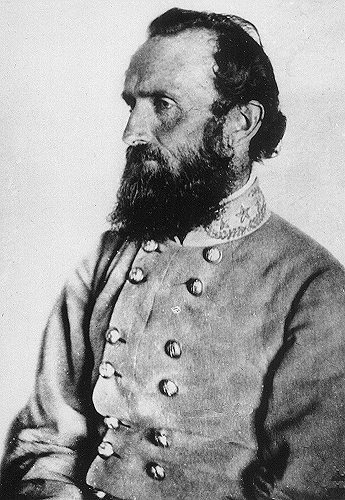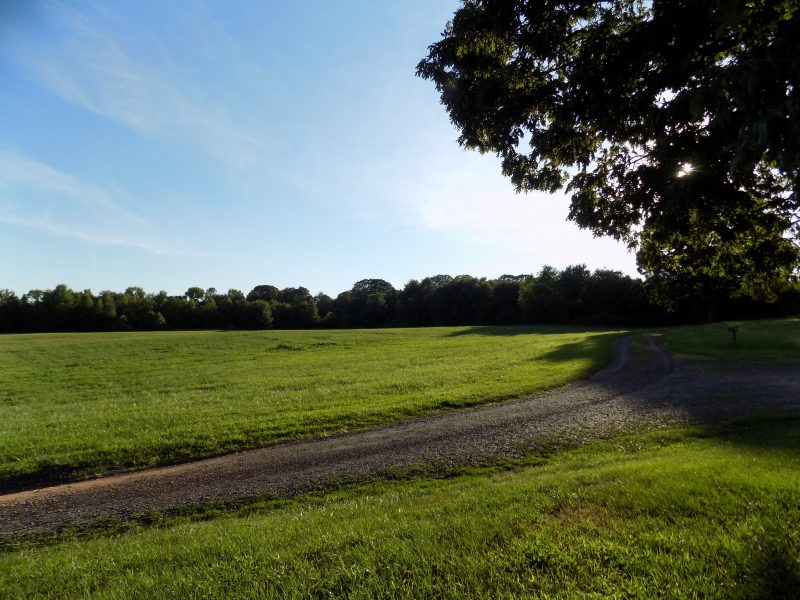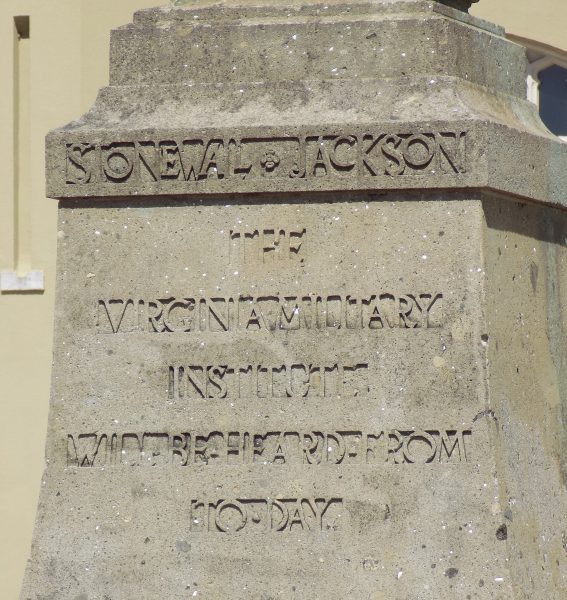“Heard From Today”: VMI and Jackson’s Words at Chancellorsville

General, The enemy has made a stand at Chancellors’s which is about 2 miles from Chancellorsville. I hope as soon as practicable to attack. I trust that an Ever Kind Providence will bless us with great success. Respectfully, T.J. Jackson Lt. General
Genl. R.E. Lee – The leading division is up & the next two appear to be well closed. T.J.J.
For the next two hours, Jackson waited. The commanding general passed the time with General Stuart and staff officers, resting in the trees’ shade. His troops lined up in their battle positions as quietly as possible. Rodes’s division, then Colston’s, followed by Pender and Lane’s brigades. Nearly 21,000 men total, creating a layered battle line about one and half miles long.
Just prior to 5 P.M., Jackson’s staff officer, Sandie Pendleton, brought word: the battle lines were ready. The general rode to Luckett’s Farm to take advantage of the high ground. There, he surveying the situation and remarked, “The Institute will be heard from today.”
It stood over one hundred miles away with castle-like walls, barracks, and classrooms. The Institute. Virginia Military Institute. VMI. What prompted General Thomas J. Jackson to associate the moment prior to the his flank attack on May 2, 1863, with the school where he had taught prior to the war?
Seventeen commanders.
From division commanders to brigadiers and colonels, seventeen of the officers poised on the Union flank that afternoon or waiting in other battlefield positions had connection to Virginia Military Institute. Some had experience as professors, others were alumni.
For example, two of the leading division commanders for the attack had direct connection to VMI. Robert E. Rodes – leading the forward division in this Chancellorsville attack – had graduated in the Class of 1848, then taught at the Institute for two years before pursuing a career in engineering and teaching. During the Civil War, he fought during the Peninsula Campaign and Fredericksburg before his promotion to major general just prior to Chancellorsville. Rodes went on to fight on other battlefields until his death at the Battle of Winchester in 1864.

Raleigh E. Colston graduated in the VMI Class of 1846, then taught French at the Institute until 1861. He started the Civil War as the colonel of the 16th Virginia Infantry, then moved to brigade and division command. Later, he fought in the defense of Petersburg and Lynchburg.
Other VMI alumni in the officer ranks at Chancellorsville included:
- Francis Mallory, Class of 1853, Colonel of the 55th Virginia
- Thomas S. Garnett, Class of 1848, Colonel of the 48th Virginia
- Randolph L. Miller, Class of 1863, Lieutenant in the 10th Virginia Infantry
- Thomas T. Munford, Class of 1852, Colonel of Munford’s Cavalry Brigade
- Birkett D. Fry, Class of 1843, Colonel of the 13th Alabama
- John R. Jones, Class of 1848, Colonel of the 33rd Virginia
- James H. Lane, Class of 1854, Brigadier General
- William H. Mahone, Class of 1847, Brigadier General
- James A. Walker, Class of 1852, Brigadier General (Stonewall Brigade)
- Stapleton Crutchfield, Class of 1855, Colonel and Chief of Artillery for Second Corps
For Thomas J. Jackson, his years in Lexington and at VMI had been among the happiest of his life. Though he was not a talented or popular classroom instructor at the Institute, his influence was noticeable, especially as the Civil War unfolded and his fame increased with his victories. Some of the men gathered with Jackson that afternoon had been professors. Others had literally sat in his classroom. One – in his hot tempered cadet days – had challenged Jackson to a duel.

Their days at VMI had prepared these men for war. For a moment like that afternoon at on May 2 at Chancellorsville. Another link in the Institute’s Civil War legacy would be forged that day. Jackson would be the most remembered, but the other officers would have their roles, too; some, like Stonewall, would pay the price for their battlefield leadership with wounds or death in the hours after the attack launched.
After Jackson’s wounding, death, and Lexington burial, he was even more closely linked to Virginia Military Institute’s legacy and memories. Cadets who had not sat in Jackson’s classes boasted about his battlefield successes and aspired to follow the Stonewall example. Exactly one year after Jackson’s death, orders arrived for the young men in the Institute’s barracks to join General Breckinridge as reinforcements for the New Market Campaign. Five days later on May 15, 1864, they would help fill a gap in the battle lines at New Market and captured a cannon. The Institute had been heard from again.
General Jackson’s words in those moments before the attack at Chancellorsville ring through the years. He spoke them personally and inspirationally to the officers around him, but they had a deeper meaning as Virginia Military Institute’s history emerged and traditions formed.
VMI alumni have fought in every major war and conflict in U.S. History since the Institute’s founding in 1839. Notably leaders – like General George S. Patton or General George Marshall – came from the Institute along with battlefield commanders, civic leaders, scientific and medical innovators, and educators. Whether in the military or in civilian life, graduates of the Institute have made important contributions to defense, security, politics, and society.
Jackson’s words are engraved on the column of a monument overlooking the parade field at VMI. The statue at the top of the pillar depicts Stonewall, watching the field in the moments before his famed flank attack. Created by Sir Moses Ezekiel (Class of 1866) and unveiled at the Institute in 1912, it imagines Jackson standing immovable and ready, field glasses in hand and the breeze messing with his frock coat as he waits to give the command to advance.
“The Institute will be heard from today.” That proved true on May 2, 1863. And each new graduating class and each success of an alumni – whether in war or peace – adds to that promise from Stonewall made on the Chancellorsville battlefield.
Sources:
Robertson, James L. Stonewall Jackson: The Man, The Soldier, The Legend. (New York, MacMillan Publishing, 1997).
Mann, B. David. They Were Heard From: VMI Alumni In The Civil War (Lexington, VMI Publication, 2006).
Sears, Stephen W. Chancellorsville. (New York, Houghton Mifflin Co., 1996).
VMI Civil War Generals (VMI Archives) https://www.vmi.edu/archives/civil-war-and-new-market/vmi-civil-war-generals/
Statues and Monuments at VMI (VMI Archives) https://www.vmi.edu/archives/vmi-archives-faqs/statues-and-monuments-at-vmi/


thanks Sarah…this is very timely post…I attended the retirement of a good friend (VMI ’88) last week…he mentioned VMI in his remarks and I was reminded of all the great Americans from that great institution.